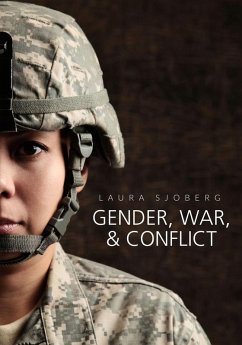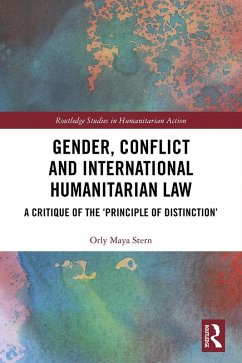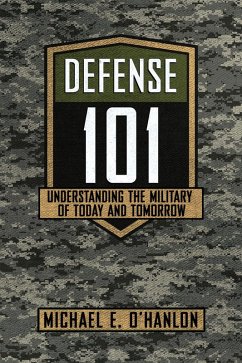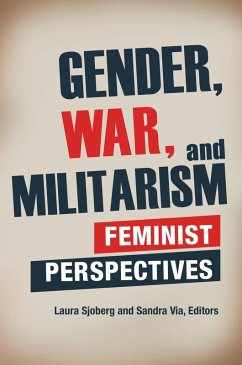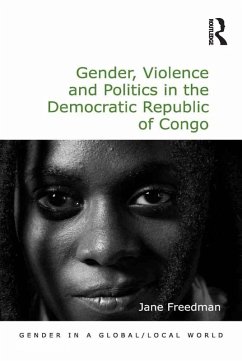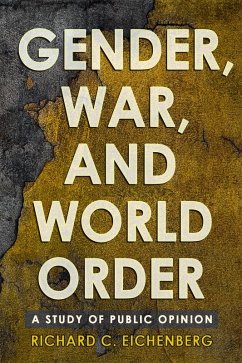
Gender, War, and World Order (eBook, ePUB)
A Study of Public Opinion

PAYBACK Punkte
15 °P sammeln!
Motivated by the lack of scholarly understanding of the substantial gender difference in attitudes toward the use of military force, Richard C. Eichenberg has mined a massive data set of public opinion surveys to draw new and important conclusions. By analyzing hundreds of such surveys across more than sixty countries, Gender, War, and World Order offers researchers raw data, multiple hypotheses, and three major findings.Eichenberg poses three questions of the data: Are there significant differences in the opinions of men and women on issues of national security? What differences can be discer...
Motivated by the lack of scholarly understanding of the substantial gender difference in attitudes toward the use of military force, Richard C. Eichenberg has mined a massive data set of public opinion surveys to draw new and important conclusions. By analyzing hundreds of such surveys across more than sixty countries, Gender, War, and World Order offers researchers raw data, multiple hypotheses, and three major findings.
Eichenberg poses three questions of the data: Are there significant differences in the opinions of men and women on issues of national security? What differences can be discerned across issues, culture, and time? And what are the theoretical and political implications of these attitudinal differences? Within this framework, Gender, War, and World Order compares gender difference on military power, balance of power, alliances, international institutions, the acceptability of war, defense spending, defense/welfare compromises, and torture. Eichenberg concludes that the centrality of military force, violence, and war is the single most important variable affecting gender difference; that the magnitude of gender difference on security issues correlates with the economic development and level of gender equality in a society; and that the country with the most consistent gender polarization across the widest range of issues is the United States.
Eichenberg poses three questions of the data: Are there significant differences in the opinions of men and women on issues of national security? What differences can be discerned across issues, culture, and time? And what are the theoretical and political implications of these attitudinal differences? Within this framework, Gender, War, and World Order compares gender difference on military power, balance of power, alliances, international institutions, the acceptability of war, defense spending, defense/welfare compromises, and torture. Eichenberg concludes that the centrality of military force, violence, and war is the single most important variable affecting gender difference; that the magnitude of gender difference on security issues correlates with the economic development and level of gender equality in a society; and that the country with the most consistent gender polarization across the widest range of issues is the United States.
Dieser Download kann aus rechtlichen Gründen nur mit Rechnungsadresse in A, D ausgeliefert werden.





